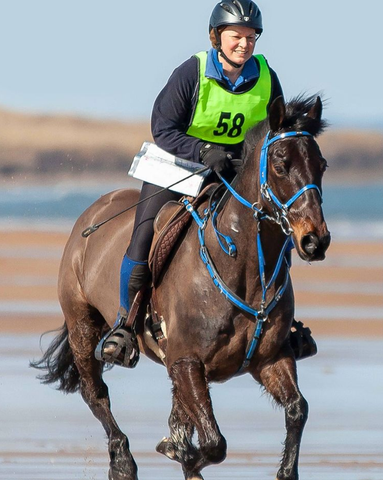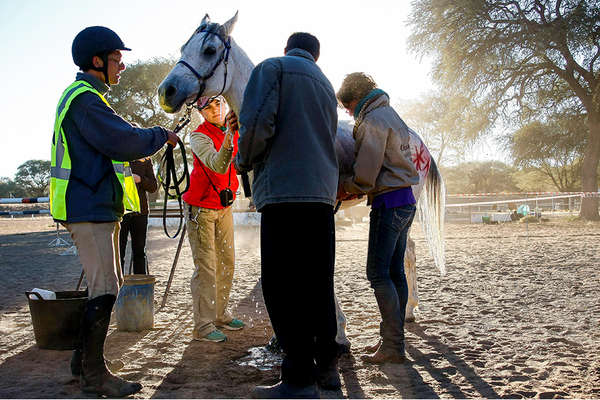Endurance Riding Veterinary Checks and Horse Health

Endurance riding is a demanding equestrian sport that tests the stamina and fitness of both horse and rider over long distances. Ensuring the health and well-being of the horse through regular veterinary checks is crucial for safe and successful participation. This article explores the key aspects of veterinary care in endurance riding, common health concerns, and best practices for maintaining optimal horse health.
Table of Contents
- Introduction to Endurance Riding
- Importance of Veterinary Checks
- Pre-Ride Veterinary Assessments
- Veterinary Checks During the Ride
- Post-Ride Health Monitoring
- Common Health Issues in Endurance Horses
- Nutrition and Hydration Strategies
- Preventative Care and Conditioning
- Frequently Asked Questions (FAQ)
1. Introduction to Endurance Riding
Endurance riding involves covering distances typically ranging from 25 to 100 miles in a single day. The sport requires exceptional cardiovascular fitness, muscular endurance, and mental resilience from horses. Due to the physical demands, veterinary oversight is essential to prevent injury and ensure the horse’s welfare.
2. Importance of Veterinary Checks
Veterinary checks are integral to endurance riding for several reasons:
- Safety: Early detection of health issues prevents accidents and injuries.
- Performance: Healthy horses perform better and recover faster.
- Regulatory Compliance: Many endurance events mandate veterinary inspections to qualify horses for competition.
3. Pre-Ride Veterinary Assessments
Before the ride, horses undergo thorough veterinary examinations to assess fitness levels. Key checks include:
| Checkpoint | Purpose |
|---|---|
| Heart Rate | Ensures cardiovascular readiness |
| Respiratory Rate | Detects respiratory issues |
| Hydration Status | Prevents dehydration-related complications |
| Lameness Evaluation | Identifies musculoskeletal problems |
4. Veterinary Checks During the Ride
During endurance events, veterinary checkpoints are established at intervals to monitor the horse’s condition. Vets assess:
- Heart and respiratory rates
- Gut sounds
- Hydration and mucous membrane color
- Limb swelling or heat
Horses not meeting health criteria may be pulled from the competition to prevent harm.
5. Post-Ride Health Monitoring
After the ride, horses require careful observation to detect delayed onset issues such as:
- Muscle soreness
- Joint inflammation
- Exhaustion or dehydration
Veterinary follow-up ensures timely treatment and recovery.
6. Common Health Issues in Endurance Horses
Endurance horses may face several health challenges, including:
- Colic: Gastrointestinal distress due to stress or dehydration
- Laminitis: Inflammation of the hoof often linked to metabolic imbalances
- Tendon Injuries: Resulting from overexertion or uneven terrain
7. Nutrition and Hydration Strategies
Proper nutrition and hydration are vital for endurance horses. Strategies include:
- Balanced diets rich in electrolytes
- Scheduled water intake before, during, and after rides
- Use of supplements to support joint and muscle health
8. Preventative Care and Conditioning
Regular conditioning programs and preventative veterinary care help maintain peak performance. This includes:
- Gradual training to build endurance
- Routine health screenings
- Vaccinations and parasite control
9. Frequently Asked Questions (FAQ)
Q1: How often should endurance horses have veterinary checks?
A: Ideally, horses should have comprehensive veterinary evaluations before and after each endurance event, with routine check-ups every 6-12 months.
Q2: What signs indicate a horse should be withdrawn from a ride?
A: Signs include elevated heart rate beyond recovery norms, lameness, dehydration, and abnormal mucous membrane color.
Q3: Can nutrition alone prevent endurance-related health issues?
A: While nutrition is critical, it must be combined with proper training, hydration, and veterinary care for effective prevention.
Maintaining the health of endurance horses through vigilant veterinary checks and comprehensive care is essential for their safety and success in the sport. By understanding and implementing these practices, riders can ensure their equine partners remain fit, healthy, and ready to perform at their best.
